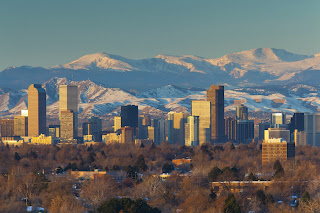‘Health And Safety Nightmare’: Homeless Encampments Permanently Shut Down Denver Gay Bar
DENVER — A popular gay bar in downtown Denver permanently closed its doors this week after city officials failed to address homeless encampments disrupting business.
On Thursday, one of the city’s first gay establishments, Triangle Denver, sent a farewell email out to customers explaining doors will open one last time this Sunday before going under for good.
“With heavy hearts we announce that, effective immediately, Triangle Denver is closing indefinitely thanks primarily to the ever-expanding encampments which have surrounded and suffocated the businesses in our neighbourhood,” the email reads.
The bar cited a customer survey of more than 500 patrons, in which 75 percent reported visiting less frequently this year compared to last year. Nearby homeless camps were named as customers’ largest complaint, with more than 60 percent saying safety concerns discouraged them from repeat visits.
The city cleared out the disruptive encampments on Sept. 27.
“For one single afternoon, we had our neighbourhood back,” the email read. “Less than 24 hours later, camps returned, and despite our pleas, have seen no action from the city to stop the re-entrenchment. We can’t ask our guests or staff to continue to endure this health and safety nightmare. Our well of patience and resources has run dry.”
A local ABC affiliate reported in August that nearby businesses on the same block “are feeling under siege as homeless encampments now surround them on three sides.” Sales for Triangle Denver dropped 40 percent over the summer.
Scott Coors, the bar’s owner, blamed incompetent city leadership for the closure claiming city hall “has dragged its feet at every turn” when asked to deal with the encampments.
“We are disappointed and frustrated with the lack of urgency with which the mayor’s office is addressing the protracted public health and safety crisis downtown,” Coors told The Federalist. “Tents block sidewalks and parking areas our customers formerly used to access our establishment. They no longer feel safe or comfortable leaving their cars and walking to and from our entrance especially at night when we have the bulk of our business, and I don’t blame them.”
“Mentally unstable individuals, rampant and openly observable methamphetamine and heroin use, human waste on sidewalks, and verbal and physical violence is common,” Coors added.





Post a Comment